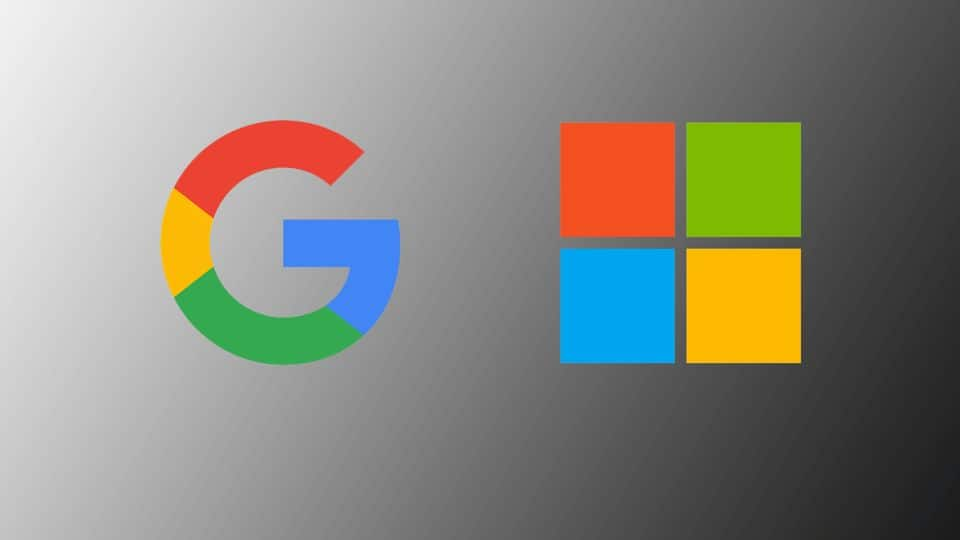
Google v/s Microsoft: Who will win the K-12 education market?
What's the story
Google currently dominates the American laptop market for K-12 education with its low-cost Chromebooks. According to analyst firm Futuresource, in the third quarter of 2017, Chromebooks accounted for 59.8% of American laptop market for K-12 education, with Windows devices accounting for only 22.3% of the market share. However, Microsoft is trying to take the fight to Google with its new, low-cost Windows 10 laptops.
Microsoft's performance
Microsoft still reigns supreme in the global market
Microsoft's 22.3% market share doesn't reflect its full story. Its market share in Q3 2017 was up from 18.1% in Q2 and, according to Microsoft, 4% more than the same quarter in 2016. Furthermore, US market apart, Microsoft still reigns supreme in the world - in Q3 2017, Windows PCs accounted for 66% of global K-12 classroom PC shipments.
Microsoft's pitch
Microsoft to provide both new hardware and new software features
Microsoft is offering Windows 10 Home or Pro, or a streamlined, lighter Windows 10 S on its new laptops. Additionally, they will add new capabilities to their free Office 365 for Education software, with features like voice-enabled typing. Microsoft will also add an update to its popular Minecraft: Education Edition game, and mixed reality video curricula from partners like BBC Worldwide Learning, NASA, etc.
Laptop offerings
Microsoft offering four new low-cost Windows 10 laptops
Microsoft, in collaboration, is offering four new devices - two each from Lenovo and JP. Lenovo is offering its new 100e ($189) and 300e ($279) laptops. The 100e is an 11.6-inch Windows 10 laptop with 4GB RAM and 64GB storage. The 300e offers convertibility and pen support. JP is offering non-touchscreen and touchscreen variants of a Windows Hello laptop for $199 and $299 respectively.
Limitations
Windows 10 S comes with several limitations
Microsoft is banking on low-cost hardware and the low-cost Windows 10 S to improve its market share. However, Windows 10 S comes with several limitations - it only supports Microsoft Store applications, and has several Windows 10 features removed. It does offer basic functionality and Office support though. Yet, if the new Windows 10 laptops are going to be restrictive, what's wrong with Chromebooks?